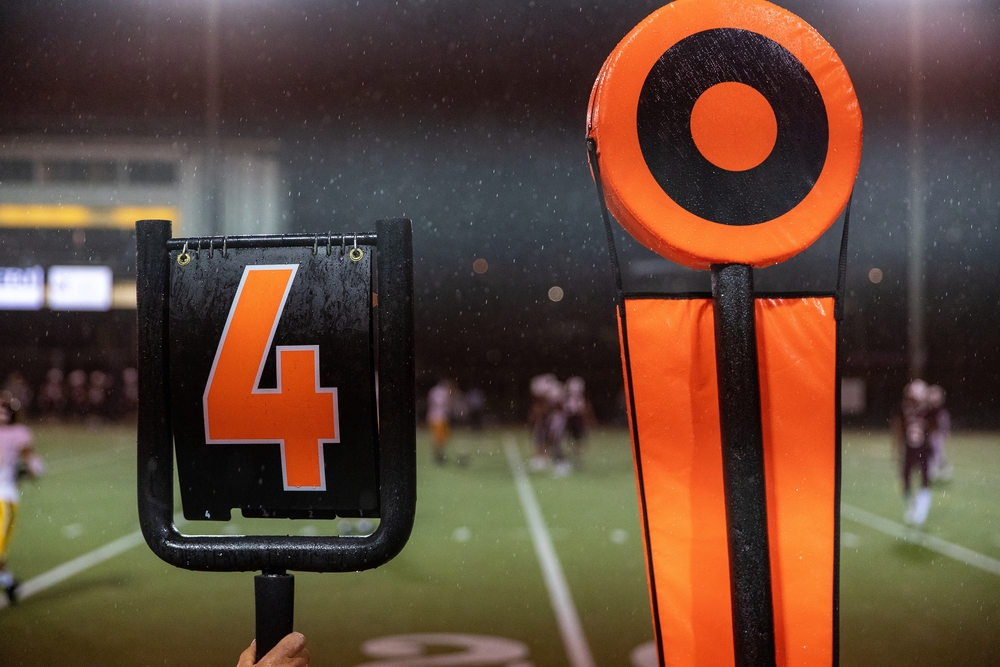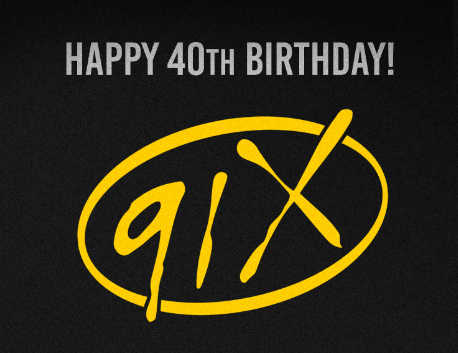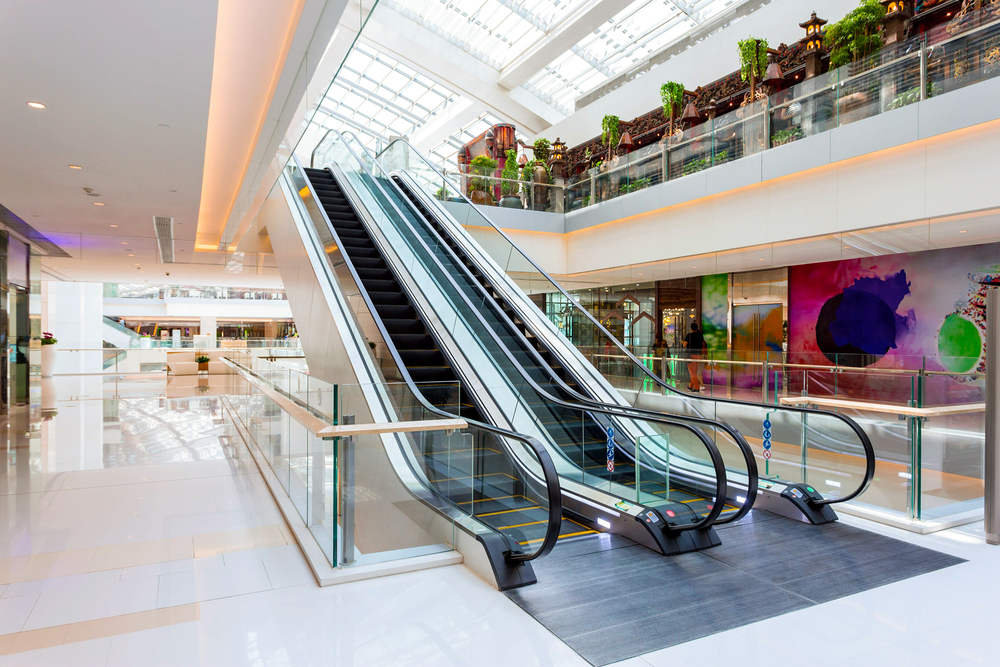
While the COVID pandemic was felt by all of us, it affected some businesses more dramatically than others.
Imagine being dependent on bringing people together into a space where they congregate, ask questions, interact with the product, take their time . . . . . while there are germs flying around that could maybe threaten their lives. Or having to pivot your entire operation so instead of shoppers coming to you, you have to deliver the product to them either physically, or through home delivery.
And if you didn’t adjust quickly, you’d be shut down.
It’s one thing if you’re Walmart, Home Depot, or Nordstrom. It’s another when you’re a small business owner, running a restaurant or store. Inventing yourself on the fly is one thing. Doing it during a global – and local – pandemic is a much heavier lift, especially when you have a handful of employees and limited financial resources.
In 2020, that was bad enough. Today, even though we have learned to live with the pandemic, local retailers are having trouble recruiting and retaining employees, finding products to sell, and dealing with price increases and supply shortages.
And you thought radio had it rough?
Actually, radio’s dealings with COVID run parallel to this retail challenge. When I ran into a great story in Retail Dive – “9 Retail Trends To Watch In 2023” it struck me how both broadcast radio and retail have the opportunity to overcome these challenges by redefining their relationship.
Instead of functioning adversarially as buyers vs. sellers or vendors vs. clients, recasting the dynamic into a local partnership serves them both. Acting as partners who need to collaborate in order to succeed and survive suits both retail and radio well at a time when the odds seem stacked against both.
Beyond the COVID experience, it makes sense for local independent retailers and radio stations to partner on many fronts to enhance these partnerships. Look at what they have in common:
- It’s different here. Both retailers and radio truly need to understand and serve their local communities, leaning into the unique differences that set their regions apart. In other words, they know their turf.
- The competition is daunting. It is no longer Macy’s vs. Gimbel’s. Local retailers are fighting big box stores that feature massive organizations and deep pockets. Similarly, radio’s competitors are mass media brands like Facebook and Google. Both are up against national and even international players that have scale, data, and vast resources.
- They’re co-dependent. That is, each has what the other lacks. Retailers have marketing budgets designed to connect with and motivate consumers. Radio not only reaches them, ,but has the ability to activate them.
- They are efficient. They serve a defined local community, and they do it without without waste. And in order to be competitive, they need to be willing to negotiate deals.
- People matter. Both radio and retail are better operations when they feature people who know their stuff, whether it’s a salesperson who knows the inventory and the product, or an air personality who curates their shows and sales reps who personally service their clients. On the local level and in the showroom, the personal touch can be a difference maker.
- Adapting to change is hard. They’ve both been slow to adapt to how technology has altered their businesses. They are straining to catch up.
And let’s not forget how radio performed for local retailers during the initial days, weeks, and months of the pandemic. Many stations supported hometown businesses with free or deeply discounted advertising, providing space on websites and mobile apps with information about which local businesses were up and running, and provided on-air mentions and support. During those first tense days, radio stepped up and showed its stuff.
businesses with free or deeply discounted advertising, providing space on websites and mobile apps with information about which local businesses were up and running, and provided on-air mentions and support. During those first tense days, radio stepped up and showed its stuff.
In 2023, it’s time to take these relationships to the next level.
The other thing to keep in mind is that radio’s digital competitors – Facebook, Google, or TikTok – are oblivious to local retail’s challenges and obstacles. To Google, a local hardware store or bistro is faceless – they are data entry with a budget and a target the algorithms fulfill – and nothing more.
It matters not if the client has special concerns, needs, extra help, or requires more emphasis heading into an event or a sale. The relationship is impersonal and transactional. No more, no less.
And that defines radio’s biggest and best opportunity – the human touch, the local knowledge, empathy, and solutions not based on a mathematical formula, but customized solutions that can serve diverse local enterprise by delivering hometown clients to their doors.
Advantage local radio.
The Retail Dive article identifies nine trends, and is a good read for stimulating DOS’ strategizing while radio is still duking it out in first quarter. It accurately defines the challenges retail clients are facing in 2023 and shows a way forward so both can be successful and grow.
I’ve isolated four key points, considering tangible ways radio broadcasters can connect and partner with local retailers to everyone’s mutual benefit and success.
Bright Shiny Objects – Two weeks ago we wandered the halls of CES2023 in Las Vegas. We saw a number of cutting-edge technologies aimed directly at retailers.
The shiniest one is the Metaverse, and it’s clear tech companies and major national retailers are beginning to invest mega dollars into creating virtual stores and other leading-edge technology in a mad dash to remain relevant and appeal to the youth market.
 Our tour visited an exhibit from Microsoft and Touchcast – a virtual car dealership, bypassing both the dealership’s website (or should I say a brochure) and its salespeople (the worst buying experience in the retail space).
Our tour visited an exhibit from Microsoft and Touchcast – a virtual car dealership, bypassing both the dealership’s website (or should I say a brochure) and its salespeople (the worst buying experience in the retail space).
In the local car sales business, the Metaverse is now being called a “dealership disruptor,” a brilliant workaround where car and truck buyers don’t even need an awkward headset in order to take a test drive or cut a deal with an avatar, while avoiding everything that’s bad about the dealership experience.
But is the Metaverse ready for prime time? Retail Dive points to a key recent research study where nearly half (48%) of teenagers aren’t sure of or aren’t interested in the Metaverse. After seeing the various treatments at CES, we aren’t sure either.
Hometown retailers should let their national competitors use up valuable resources to experiment in this cyberspace, while being brilliant at the local basics (service, selection, local knowledge), and investing in collaboration with local media partners to build strong, long-lasting customer relationships.
And radio has a role to play here, too. In focus groups we’ve conducted in recent months, retailers are expressing concern about radio’s aging Baby Boomer audience. And it’s picking up steam.
It’s time for broadcasters to get serious about focusing on Millennials and Gen Z. This blog has provided suggestions in the past, including taking the weakest station in a cluster or an HD2 station and trying something more youth focused.
Or creating streams and other digital content that connect to teens, turning over voicetracked dayparts (nights, overnights, weekends) to younger talent in order to develop the next generation of broadcast influencers.
Unrealistic in this economy? That’s the excuse, but necessity is the mother invention. And survival is the father of innovation. As my Detroit Lions proved this season, going for it on fourth down isn’t as harebrained as once thought.
season, going for it on fourth down isn’t as harebrained as once thought.
Radio could facilitate a youth movement in partnership with select local retailers. Bring business owners in and learn what they need. Would they support something youth focused and different? Is it traditional advertising, remotes, events, short videos, newsletters, or something else? None of these are bright shiny objects. But they all can be effective. And localized.
The Impact of the (Rumored) Recession – I’m not an economist, but I do live in Detroit so I know all too well what recessions look like,. Right now, this isn’t it.
I’ll leave it up to the Harvard MBA’s and CNBC hosts to pontificate about the state of the economy. But I do know this: if we start acting like there’s a recession with reductions in force and budget cuts, we know what will happen . . . . a recession!
Either way, a recession is the absolute worst time for retailers to cut back on their advertising and marketing budgets. The fight for customers will intensify, because there will be fewer of them. And businesses with strong relationships with their customers will get through it.
 And once again, that’s where radio comes in.
And once again, that’s where radio comes in.
Instead of trying to lock up ad buys for February, a smarter approach is to sit down with your local retailers and map out a recession strategy built on strengthening customer relationships.
Have an honest conversation instead of one based on budgets, pricing, and ratings. Utilize content marketing strategies to build up loyalty clubs. Offer to host focus groups of their customers to help them learn how to better serve them. Help create content with the client that is subscription-based, providing recurring revenue.
Create a monthly event that brings customers back into the stores. And for those clients who commit to you long-term, commit to them that if the economy takes a downturn, you’ll be there for them, just like you were during the early days of the pandemic.
Email marketing has proven to be an effective tool for several decades now. And retailers and radio has email databases that reach different local consumers. There’s mutual benefit there.
And on and on – a shift in focus will generate dividends.
Marketing has gotten too complex – Ask your average retailer the difference between SEO and SEM and watch their eyes glaze over. Pull out digital data sheets, re-targeting models, and geo-location maps and they will break out into a sweat.
I may be oversimplifying it, but they don’t need metrics. They need results.
Since the onset of COVID, we’ve conducted a large number of focus groups via Zoom (yes, we’ve adapted, too) among advertisers – local retailers and small agencies.
While almost all acknowledge the benefits of digital marketing, its low cost, and ROI, these tools have also created a great degree of stress and uncertainty. There are concerns about the validity and safety of the data, as well as the fear of having their ads appear next to an undesirable piece of content or an unsavory organization.
There’s also fear about buying the wrong thing because they don’t have the comfort level with digital marketing like they do with media like radio they’ve grown to trust over the decades.
And then there’s service. Have you ever tried to call Facebook or Google when there’s a problem at 4pm on a Friday?
Another thing retailers complain about is the influx of digital salespeople knocking on their doors and spamming their email inboxes with the latest and greatest products.
Many retailers don’t know who to trust in the digital wilderness because they aren’t knowledgeable about the nuances of these hi-tech products. And that leads to stress and a lack of confidence.
Once again, here’s where radio can play a key role. The medium’s local presence and familiarity can provide comfort, dependability, and trust – especially over a digital company.
 I watch a station like 91X in San Diego celebrating its 40th anniversary, and it’s a hopeful reminder of local radio’s stability. Business owners in the metro know the station won’t be shuttering its doors next week because they are a fixture in the community. There’s value there.
I watch a station like 91X in San Diego celebrating its 40th anniversary, and it’s a hopeful reminder of local radio’s stability. Business owners in the metro know the station won’t be shuttering its doors next week because they are a fixture in the community. There’s value there.
The medium has a track record for showing up, engaging, ideating, and creating solutions. If a campaign isn’t working, adjust it. Radio can provide the most important benefit to an advertiser – creative ideas – they are the currency that truly matters.
One of the biggest complaints we hear from radio sellers is they have too many things to sell. While some use this as an excuse, there is a kernel of truth here. If sellers are overwhelmed and even confused by too many tools in the tool kit, imagine how the client feels.
In an increasingly complex world, winners will be those who are calm, in command, focused, and in-sync with what their clients need and want. Those able to build confidence and trust will be the true winners.
What’s the future of malls? Retail experts have predicted the demise of malls for a long time. (Strange – many have predicted radio’s death as well.)
In many cases in areas that have been overbuilt, there have been some closures. But Retail Dive notes “malls have been surprisingly resilient” as traffic bounced back last year.
Malls remind me of the radio business. They are a collection of various entities (formats), brought together in a single place (the FM band), appealing to multiple demographic groups. What a perfect potential partnership, especially if you have a cluster of stations in your local market.
demographic groups. What a perfect potential partnership, especially if you have a cluster of stations in your local market.
Mall operators have a singular focus – generate traffic. And who does that better than radio?
The other side is that radio can benefit from mall presence, whether it’s in a centrally located spot or in a currently vacant space. A place where stations can broadcast from, sell merch, and connect with fans from around the community can be an asset when marketing dollars are sparse or nonexistent.
We are all living in complex, unpredictable, and confusing times. Retailers and radio are facing challenges each never expected. The stations that have local resources – people, production, planning can provide solutions/
It’s time for that boat ride.
- The Revolution Will Not Be Monetized - December 30, 2024
- What Kind Of Team Do You Want To Be? - October 4, 2024
- The Revolution Will Not Be Monetized - August 20, 2024




This post is packed with terrific thoughts and suggestions. Thanks, Paul!
That’s very kind of you. Always feels great to get a reaction like that. Now I hope broadcasters will take these ideas and turn them into solutions. That’s the ultimate reward.
Appreciate it.
Great points…
Great thinking…
All good…
Until the client’s commercial gets placed inside a 20-unit spot break.
Back to back with a competitor. But a good traffic manager hopefully will spot that.
Very interesting article. Thank you !